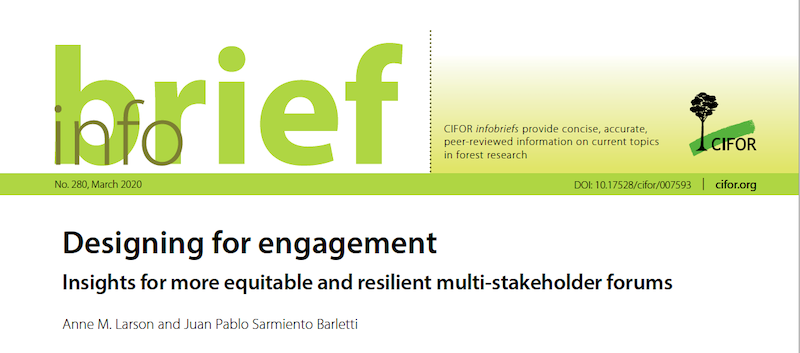
Key messages highlighted in this CIFOR infobrief include:
- Multi-stakeholder forums (MSFs) are increasingly seen as essential for collaboration – across different levels of government and among multiple constituencies – due to the growing urgency to address climate change and transform development trajectories.
- A review of the scholarly literature reveals that more equitable and resilient MSFs require a shift in emphasis away from how to design projects toward designing engagement in a way that addresses a specific situation or context.
- Designing for engagement combines top-down with bottom-up approaches, starting with a period of research and meetings at upper levels to understand the potential challenges that local project implementers face within the broader context they are encountering.
- This process is engaged, committed and adaptive, supporting a spirit of co-learning among all actors, building mutual respect and trust over time.
- This approach has the best chance of resilience in the face of change or challenge, and of leading to equitable outcomes – and is not fostered by the increasingly short-term nature of donor funding and the emphasis on simple quantitative impact indicators.
While understanding context is essential to produce more resilient initiatives, the cases point to the need for a shift in focus away from project design toward designing for engagement. This means an emphasis not on how to work passively within or around context, but how to engage stakeholders in a way that actively addresses each distinct context, whatever its features, in the process of both project design and implementation.
– Anne M. Larson and Juan Pablo Sarmiento Barletti



